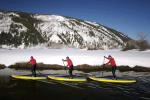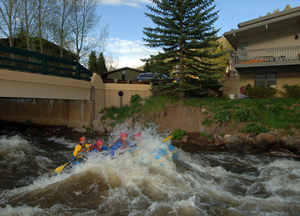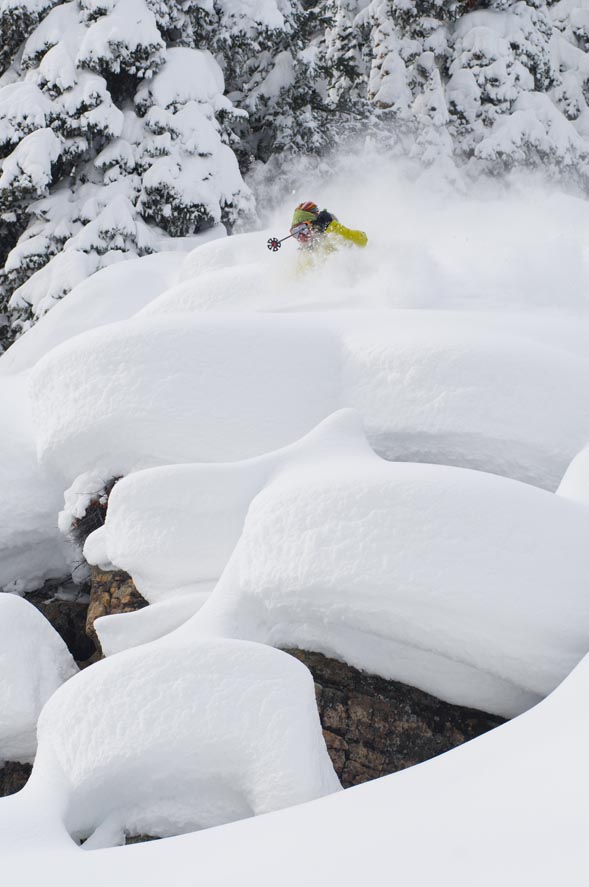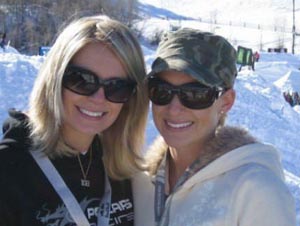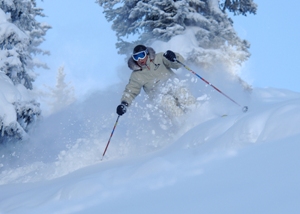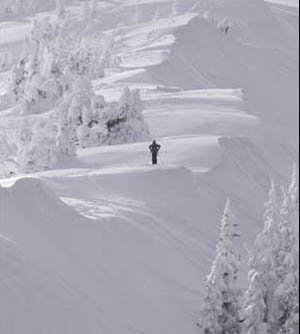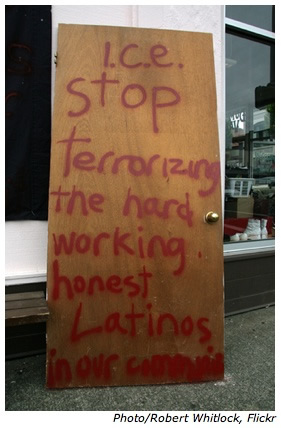
- Recent town of Vail community survey identifies parking as top issue for townies
- Vail Christian High School board buys back bonds, rescues next school year
- Vail Resorts to host Lindsey Vonn celebration in Vail Wednesday, March 31
- Vail Resorts Epic Pass, Summit Pass available through November 30, 2009
- 9 candidates, including 3 incumbents, running for 4 Vail Town Council seats Nov. 3
- Nominating petitions for four open Vail Town Council seats available Sept. 14
- Eagle County commissioners to vote Tuesday on temporary marijuana dispensary regulations
- Vail Town Council rejects ballot question to change council terms
- Polis defends health-care reform at packed town hall in Edwards
- Vail blaze illustrates need for defensible space, roadless rule changes, state says
- All Real News Articles
May 5, 2008 — It was a quiet May Day in the mountains of Colorado, and much calmer on the immigration-rights demonstration front across much of the state and nation than the past two years. But as Coloradans gather to celebrate Cinco de Mayo today, there is a growing sense of unease over intensified enforcement efforts and stalled federal reform of immigration laws.
Congress has seemingly gridlocked on comprehensive immigration reform, and the topic is a non-starter for the three candidates still vying for the presidency. Democratic Sens. Hillary Clinton and Barack Obama both backed presumptive Republican candidate Sen. John McCain's failed amnesty proposal two years ago, and they all have given the nod to a border fence.
But at the state level, an anti-immigration law from 2006 has ratcheted up the level of fear among immigrant laborers in many communities, including the luxe resort region of the central Rockies, where tourism and real estate development are king and cheap labor is desperately needed in order to stoke the twin engines of construction and hospitality.
Hispanics represent the fastest-growing demographic in the United States; the U.S. Census Bureau announced May 1 that the nation's Hispanic population increased by 1.4 million between July 1, 2006, and July 1 of last year to reach 45.5 million -- or 15.1 percent of the estimated U.S. population of 301.6 million.
To reach potential new Hispanic snow riders, ski area operators are taking steps to ramp up their diversity programs. Vail Resorts, whose four Colorado ski resorts account for about 10 percent of all the skier days nationwide, has teamed up with the nonprofit SOS Outreach program to provide free ski and snowboard lessons to at-risk youth and kids from inner-city areas or low-income households.
"I didn't start skiing until I was 25 because I couldn't afford it, so I never went even though ski areas were not too far from the valley," Sen. Ken Salazar said at an SOS event this past ski season. Salazar grew up on a ranch in Colorado's San Luis Valley, which is not far from Wolf Creek ski area and Durango Mountain Resort.
"There are ways that programs like SOS make it possible for kids to get these first opportunities, which builds character and confidence more than anything," said Salazar, one of just two Hispanic senators elected since 1977. "I always say to kids all over the country, 'If you develop confidence in one thing, you can do anything. You just have to be confident that you can do one thing well and it will spread.'"
In 2004, industry statistics placed Colorado's minority participation in snow sports at 6.7 percent, trailing the national average of 10 percent; statistics on Hispanic participation as a share of that overall number are not available. Recruiting young Latinos to snow riding will help change cultural impediments and develop a love of the mountains for generations to come, industry officials say.
"A big part of this is connecting the mountains, which are one of the greatest recreational opportunities in the country and certainly in Colorado, with everybody down in Denver," Vail Resorts CEO Rob Katz said. "And it's something we really started last year. We did a comprehensive program across all of our resorts connecting with the public school kids who otherwise couldn't make it up here."
That program includes free lift tickets and lessons from volunteer instructors, with gear, transportation and clothing provided by other vendors, Katz said. SOS, founded in 1993 by a group of Vail snowboard instructors, including Eagle County Commissioner Arn Menconi, is one of the most successful youth development programs for winter sports in the country. The organization taught skiing and snowboarding to more than 3,000 kids at 30 mountain resorts in eight states last season.
Roberto Moreno, founder of the Denver-based Alpino Mountain Sports Foundation, an organization dedicated to increasing diversity in the ski industry, ran Vail Resorts' diversity program prior to SOS taking over last season. Moreno, a former ski patroller in Summit County, Colo., who grew up in East L.A., said much more needs to be done to increase access for city kids to the mountain resorts of Colorado.
"People in mountain communities do not understand that the growing lack of youth participation and exclusivity in mountain sports is making our mountains irrelevant to most Coloradans," Moreno said. "Consider the fact that today, 95 percent of Denver kids never get to the mountains during their entire youth."
A dwindling number of work visas nationwide has sent resort operators scrambling outside of their usual hunting grounds of Australia, New Zealand and Eastern Europe and into South America in search of student workers from countries like Argentina. And now they're getting even more creative, mining places like Puerto Rico for workers unencumbered by visa restrictions.
In Eagle County, home to Vail and Beaver Creek ski areas and with a Hispanic population of 27.5 percent compared with 19.7 statewide, legal and illegal Latino immigrants remain a critical part of the local labor pool - particularly in Vail, where a billion-dollar-plus construction boom has been underway for several years.
A booming resort economy that for years has relied heavily on the wealthiest upper crust of Latin American society as both tourists during the holiday seasons of Christmas and Easter and also as second-home owners, Eagle County conversely is deeply dependent on Latino workers who are now being aggressively targeted by U.S. Immigration and Customs Enforcement raids.
Labor and housing shortages came to a critical head this past ski season, forcing some businesses to cut back hours of operation, delaying construction projects and even preventing the local ski areas from staying open longer despite record snowfall amounts.
Vail ski area shut down April 13, and resort operators said a lack of workers prevented them from extending the season. Vail's famed Sweet Basil restaurant had to cut lunch service for the same reason, and Vail Valley employers have complained for years about acute labor shortages.
"These people are not a threat to our pool of available jobs; they're absorbing jobs that truly no one else wants to fill," said Don Cohen, a Republican who heads up the Economic Council of Eagle County. "The combination of raids and tightening up on the borders will have a very felt effect here in the county. We're just going to feel it in the construction trades and in hospitality. It's going to be harder to take up the slack as we lose some of these workers, and you can feel the pressure. It's going to be uncomfortable."
Recent ICE raids in Avon, at the base of Beaver Creek ski area, and April 30 in Aspen, where eight people were arrested, are creating an environment of fear in the immigrant community, both legal and illegal, activists say.
"It's almost like it's become militant against the immigrant in our state," said Debbie Marquez, a local restaurant owner and a Democratic National Convention Committee member, who laments 2006 state legislation aimed at cracking down on illegal immigration by requiring papers to receive certain state services, as well as heightened cooperation between local police and federal enforcement agents. "If we had some leadership from our state Legislature, then we could change the tone."
Danielle Short, human rights program director for the American Friends Service Committee and a founding member of the Colorado Immigrant Rights Coalition, agreed that the state's anti-illegal immigration laws have increased the level of fear and that the state-level debate needs to be toned down.
"The situation in employment has been a really big issue, the fact that as a state we feel pressured by the rhetoric of a very small minority to pass this package of bills (in 2006) that really tied up the state's economy," Short said. "It's all trying to make a point and show the small minority that we're doing something, when the real issue is at the federal level, where we need comprehensive immigration reform."
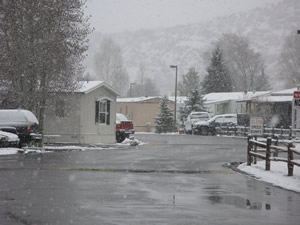 RealNews by clicking here" title="The Aspens trailer park in Avon was the scene of a federal ICE raid last week in which seven people were arrested. Read the related article in RealNews by clicking here" />
RealNews by clicking here" title="The Aspens trailer park in Avon was the scene of a federal ICE raid last week in which seven people were arrested. Read the related article in RealNews by clicking here" />
Short said her organization has been carefully monitoring the current push in the Legislature for a guest-worker program, which she said is not a good long-term solution for labor shortages in places like Eagle County.
"We have grave concerns about that as a solution because historically guest-worker programs have created the conditions for terrible exploitation," Short said of the bill that prompted Republican Rep. Douglas Bruce's now-infamous "illiterate peasants" comment on the House floor.
The border and internal enforcement crackdown and the flagging U.S. economy have dampened the morale of immigrant workers, reducing the amount of monetary remittances back home and simply making crossing the border no longer worth the effort. And that's not easing labor shortages in mountain-resort areas or reducing the level of anti-immigrant rhetoric, Marquez said.
She cites the success of a new Human Rights Commission established by the Portland, Ore., city council in January as the type of model some Colorado communities may want to explore.
"Instead of ignoring or condemning the issue, come up with ways to create a welcoming environment for the immigrant community," Marquez said. "How can we make them feel part of our neighborhoods and society and not be hiding and afraid? It may not fly where Doug Bruce lives, but it may work elsewhere."
![]() 4 Comments on "Ski towns struggle with labor crunch as immigrant crackdown continues"
4 Comments on "Ski towns struggle with labor crunch as immigrant crackdown continues"
Brittanicus — May 5, 2008
Oklahoma, Georgia, Arizona and several other future-thinking states have enacted their own predator employer sanctions. However, if we just demand our tainted Democrats lead by House Speaker Pelosi endorse the pending Federal SAVE ACT (H.R.4088). We will not have an iron fist bill that will not only strengthen state laws, but it is also all encompassing to remove illegal by ATTRITION from our whole nation.
We do not have to deport illegal immigrants? Nor anybody who came to America, through the back door? All we have to do is demand that the majority of Democrats CO-AUTHOR the Federal SAVE ACT (H.R.4088) If this bill is passed, the 12 to 30 million illegal immigrants will start repatriating themselves. It will not cost hardly any money. It certainly will not be costing US.taxpayers, what the expenditure is currently. It's main impact is on the parasite employers, who cleverly default working taxpayers out of billions of dollars a year. Once the iron fist comes down on big business and they start finding their ill-gotten profits are confiscated, plus they could end up in prison. Whose going to take the chance of hiring foreign illegals?
They will leave by ATTRITION. No jobs available other than citizens? Bye Bye. They will pack up and leave for home. Go & judge for yourself at numbersusa
Piper — May 6, 2008
Thank you for this article. It does an excellent job of illustrating how enforcement of unjust and unrealistic laws has damaged our community and our economy.
Comprehensive Immigration Reform will heal both in many ways. It is maddening that congress refuses to act on this morale and economic issue. Instead of working together to create a system which is fair, Democrats and Republicans alike are hiding behind the SAVE Act. The SAVE Act will only increase the militarization of our border and enforcement actions in our interior. The SAVE Act doesn't provide new solutions for labor or heal our communities.
WOW — May 6, 2008
The sign says... "ICE Stop terrorizing hard working honest latinos". I agree if they are legal immigrants or US Citizens. If they are illegal aliens then they are NOT honest, they are not innocent and they need to be deported.
chuck — May 10, 2008
An odd article. Absolutely nothing representing the side of the argument in favor of legal immigration and strong borders. This reads like an article for the La Raza newsletter.





